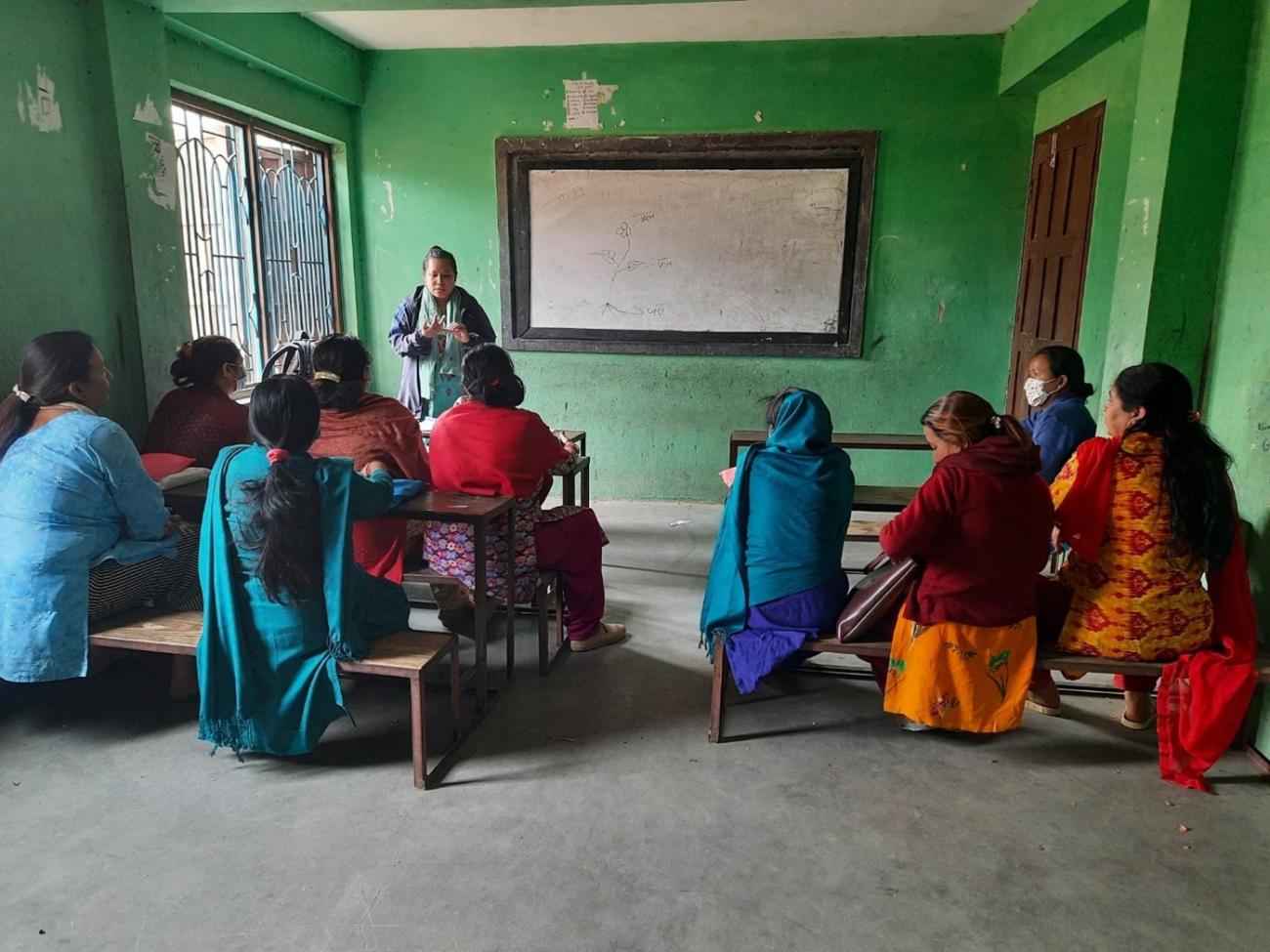The pandemic had a grave impact on the psychosocial well-being of women and girls with disabilities, especially those in situations of gender-based violence. NFDN trained twelve women in Lumbini province as peer counsellors to help manage the sensitive issue of gender-based violence. These 23 women are now key facilitators, intervening in a timely manner in cases of gender-based violence involving persons with disabilities and their families.
“Yes we can” ensured that facilities and healthcare workers are adequately equipped to provide appropriate treatment and care to persons with disabilities who develop COVID-19. NFDN trained frontline COVID-19 nurses and paramedics, while the COVID-19 Unified Central Hospital, a reference facility for COVID-19, was assessed for disability inclusion by a team of persons with disabilities. Using the results of this assessment, WHO and partners advocated for and supported the hospital in addressing gaps to ensure a disability-inclusive COVID-19 facility that will serve as a standard for all other unified COVID-19 facilities across the country.
As part of its data-driven advocacy, “Yes we can” collected information from 21 COVID-19 facilities on whether assistive devices and other basic amenities, including water, sanitation, and hygiene were available for persons with disabilities, and shared it with the authorities. Similarly, data on almost 1,500 households of persons with disabilities not suitable for home quarantine/isolation were shared with the municipal authorities so that members of such households could be prioritized for institutional quarantine or isolation.
NFDN and partners prioritized the vaccination of 90,000 persons with severe disabilities (43% of registered persons with severe disabilities in the country). Transportation to vaccination facilities was arranged by municipalities and local entrepreneurs. The vaccination registration system developed for this purpose allowed accurate data to be recorded on persons with disabilities.
Most importantly, “Yes we can” continued to enhance the disability-inclusive three-tier health system model for emergencies that emerged from the experience of previous disasters, including the 2015 Nepal earthquake. Previous disasters highlighted the importance of having a separate injury rehabilitation subcluster during emergencies. The systems and processes that have been developed and expanded are applicable not only for large-scale disasters but for small-and medium-scale emergencies, and should be sustained at all times.
WHO and NFDN have also developed guidance on managing children with disabilities in COVID-19 facilities and are working together with the government on guidelines to allow persons with disabilities to take part in emergency preparedness and response.
The Nepal experience can be applied to similar low- and middle-income country contexts. An enabling environment that allows persons with disabilities to become involved and show initiative in line with the “nothing about us without us” principle will ensure that no one is indeed left behind.
Started as a pilot initiative in the city of Pokhara in Gandaki Province – more than a hundred miles from the capital, Kathmandu – “Yes we can” has been scaled up to all 77 districts of all seven provinces of Nepal.
Note: This piece was originally published in the WHO report: Community assets and civil society outreach in critical times: An initiative to engage civil society organizations in the COVID-19 response.




